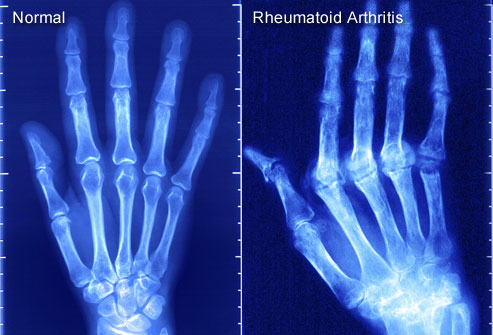In America today, roughly 19 million people suffer from depression. It is estimated that at any given time, three to five percent of adults are experiencing a major depressive episode, and 2 of every 100 kids and 8 of every 100 teenagers have severe depression. All of these statistics exist despite depression being a very treatable mental illness. Why? Because many people’s struggle is invisible, even to the people who are closest to them. This is known as concealed depression. (3, 4, 5, 6)
Just as it sounds, concealed depression is a mood disorder that causes a persistent feeling of sadness, emptiness, and loss of interest. It is a medical condition that changes the way you think, feel, and act. Concealed depression is not necessarily a diagnosis, rather it is expertly hidden depression and goes unnoticed, even to those closest to that person. (1, 2, 3, 4, 6)
People who have concealed depression may not even appear unhappy, in fact they can frequently be the person in the room with the biggest, brightest smile. There are many reasons why people will hide their depression from others, including: (1, 2, 3, 4, 5, 6)
- Fear of sharing their darkest secrets and fears with others, making themselves more vulnerable
- Not wanting to “burden” others with their problems
- Afraid to be labeled as “depressed” or “mentally ill”
- They think that no one will understand or even want to help
- They don’t think that they can be helped
In a society that encourages us to only ever show people our highlight reels and never display some of the harsh realities of our daily lives, it becomes easy for people with depression to feel alone and like no one wants to hear about their problems. (1, 2, 3, 4, 5, 6)
Those with depression can often easily go unnoticed by others who are distracted by their own lives and problems, and many friends and family members have a hard time accepting that someone they love and have known for years might be experiencing depression. As much as it is important for anyone with depression to reach out and talk to someone, it is equally as important for the rest of us to keep an eye open for the signs of depression and step in before it is too late. (1, 2, 3, 4, 5, 6)
Surprisingly, many people living in the limelight are high functioning, but are living with depression. Thankfully, many are stepping forward to share their experiences and providing hope and encouragement to everyone who’s dealing with the condition. People like:
- Kirsten Bell, who said in an interview, “Understand that there’s no shame in seeking help, including medication, for mental health conditions.”
- Lady Gaga is passionate about helping the younger generation, telling Billboard magazine, ““I’ve suffered through depression and anxiety my entire life… I just want these kids to know that … this modern thing, where everyone is feeling shallow and less connected? That’s not human.”
- Owen Wilson survived an alleged suicide attempt in 2007. At the time, he asked the press and media to respect his privacy instead of sensationalizing speculations about his health. Since then, Owen has continued to thrive in his acting career and is raising 2 young sons. He is a testimony to the fact that everyone handles mental health differently, and that there’s nothing entertaining about depression.
- Dwayne Johnson, who said in an Oprah show, “You’re not the first to go through it; you’re not going to be the last to go through it … I wish I had someone at that time who could just pull me aside and [say], ‘Hey, it’s gonna be okay. It’ll be okay.”
- Demi Lovato, who was diagnosed with bipolar disorder, told People magazine after coming out of treatment, “I feel like I am in control now, where for my whole life, I wasn’t in control.”
- Kerry Washington opened up about her depression with Glamour magazine: “I think it’s really important to take the stigma away from mental health.”
Habits of those with Concealed Depression
Many of the signs of concealed depression are subtle and difficult to spot. Due to the stigma that still exists around depression and mental illness, it can be uncomfortable for people to openly ask someone if they are struggling, if they notice it at all. If you notice any of your friends or family members exhibiting any of these habits, don’t be afraid to talk to them about it. Knowing they have your support will allow them to “un-conceal” their depression.
1. They lose interest in their favorite activities
When someone is depressed, they lose the zest for life that they once had, and this often shows up in their lack of enthusiasm for the things they once loved. Perhaps they used to love the piano but haven’t played in months, or they quit playing recreational soccer even though it used to be the highlight of their week. (1, 2, 6)
2. Overeating or Appetite Loss
A change in dietary habits can often be a sign of depression and will look different depending on the person. Some people find food uninteresting or even metallic tasting when experiencing depression, others turn to food for comfort. Besides the physical weight loss or gain that could occur, other changes could be a friend who stops coming to eat in the cafeteria or a family member who starts eating alone increasingly frequently. (1, 2, 6)
3. Abnormal Sleeping Habits
Insomnia can often be a symptom of depression, but so can excessive sleeping. For people who suffer from extreme depression, sleeping is a temporary escape from those feelings. Also, being constantly depressed, and trying to hide it from others, is both physically and emotionally draining. They might be tired all the time when they were once full of energy, and nap more often. (1, 2, 6)
4. They look at drugs, alcohol, and medications differently
They know that alcohol is a depressant and that they may not be equipped to handle the temporary low that it can put drinkers in. They understand that caffeine and sugar are stimulants and can boost their mood, and they know a lot about medications, what they are for, and what they can and can’t be mixed with. They know all this because altering their state of mind, both positively and negatively, can have a much greater impact on them than it will on others. (1, 2, 6)
5. They are often talented and expressive
We tend to think of people with depression as people who are recluse and quiet, however those with concealed depression can often be loud and have a unique ability to express themselves by way of music, art, comedy, writing, and poetry. This is because people with concealed depression can be much more in tune with both the good and bad pieces that make up who they are. (1, 2, 6)
6. They can be perfectionists and seek love and affection
Because those with concealed depression are exceptionally aware of both their positive attributes as well as their faults, they strive to always be perfect, and fear if others see their imperfect side or their failures, that they will no longer love and accept them. They want to protect themselves, their identity and their heart, as well as protect others around them from their own demons. (1, 2, 6)
7. They may struggle with abandonment
Along similar lines, they are constantly in fear of being a burden to those around them. This is why they smile, laugh, and make jokes to cover up their true feelings. They are afraid that if they show you their true self and their emotional state, you will walk away from them. (1, 2, 6)
8. They create fantastic cover-up stories
People with concealed depression become masters at coming up with believable reasons why they never returned your calls, why they skipped dinner, why they are feeling so tired, and even why there are cuts or bruising on their arms. While this can be hard to see right off the bat, if you notice patterns, such as they are skipping family dinner more often than not or they even just seem more secretive than they once did, this is a tell-tale sign they are struggling. (1, 2, 6)
9. They have habitual remedies
Everyone has their own way of coping with sadness and negative feelings, but for those with concealed depression it is of critical importance that they never skip these habits. These can be seemingly healthy habits, such as running or exercising, listening to music, going for a walk or a drive. These can signal problems however, when done in excess, in secret, or if it is a big deal if they can’t go for their run or hit the gym that day due to a schedule change. (1, 2, 6)
10. They make efforts to only project the happy parts about themselves
This can take the form of constantly posting about how great their life is or how much fun they are having on social media, or just never admitting that a situation is hard, difficult, or that something makes them feel sad. It is good to try and stay positive in difficult times, but those with concealed depression may deny that times are tough at all. (1, 2, 6)
11. They have deep perceptions of life and death
Those with concealed depression often spend much time thinking about life, death, and what both of those mean for them and for society. They often have complex, unique views on the subject that can only come from having grappled intensely with the idea of their own mortality and what purpose or impact their life has. (1, 2, 6)
12. Searching for a purpose (externally)
We are all typically trying to find our way in the world, however people with concealed depression are often doing so in a way that covers up their fears of being inadequate. They often change directions (jobs, majors, living situations, etc) frequently in an attempt to compensate for their perceived short comings and are desperately seeking something external to give their life purpose instead of looking inward. (1, 2, 6)
13. They may let out small, subtle cries for help
While they typically aim to cover up how they are thinking and feeling, people with concealed depression may have brief but important moments when they open up a little bit to someone they feel safe with. Due to their fear of being judged, labelled as “mentally ill”, and being a burden to the people they love, it is important that those around them help them feel they are in a safe space to be honest about their inner demons. Typically, those with depression can feel very alone, as though everyone else is happy and full of purpose. It is crucial that we are all honest with those we love when we are feel down, stressed, or anxious about something, because talking about our own problems and fears can help those with concealed depression feel safe to do so as well. (1, 2, 6)
Concealed depression is challenging to spot. Often these people are the first ones to crack a joke, offer a smile, and are very successful, talented people. As a society, we need to ensure that we aren’t so wrapped up in our own lives that we miss the subtle cries for help from others.
If you are suffering from concealed depression, these feelings don’t have to run your life: You can heal, and you can feel joy again. Reach out and talk to someone you love or speak with a counselor or help line.
This article originally appeared on The Hearty Sole.



